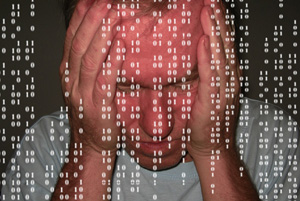
How to Recognize the 8 Warning Signs of Internet Addiction
 For the last two decades, maladaptive Internet use and addiction have been on the rise among adolescents and young adults. Residential and intensive outpatient treatment centers have emerged with treatment programs for Internet addiction. Community centers and college campuses have also begun to address the maladaptive use of online gaming and internet use.
For the last two decades, maladaptive Internet use and addiction have been on the rise among adolescents and young adults. Residential and intensive outpatient treatment centers have emerged with treatment programs for Internet addiction. Community centers and college campuses have also begun to address the maladaptive use of online gaming and internet use.
The Internet is a unique paradox. On one hand, it offers many positive benefits to users and has become an accepted part of daily and professional life. On the other hand, its overuse has resulted in a wide array of negative social and personal ramifications.
The idea of “Internet addiction,” or more specifically, “Internet Addiction Disorder,” has been recognized as excessive computer use that interferes with daily life and interpersonal relationships. Excessive gaming has been identified as a specific subtype of Internet addiction.
According to the American Medical Association, up to 90 percent of American adolescents and young adults play video games, and as many as 15 percent—more than 5 million youths—may suffer from addiction. CBS News reported that The Netherlands opened the first Detox Center for Video Game Addiction to address this problem back in 2006.
In the specific area of online gaming, it is important to understand that the root of addictive behavior stems from the creation and interaction of virtual worlds: three-dimensional societies where players immerse themselves fully into the collective experience. They create personas, friends and families that, while virtual, can feel quite real. Problems begin when players utilizing their virtual personas begin to blur the distinction between what is real and what is fantasy.
It has also been suggested that those with emotional problems may be more at risk of developing an addiction to Internet gaming.
An online addiction to gaming leads players to deprive themselves of sleep, diet, exercise and meaningful personal interactions or contact. It is not unusual for gamers to play for upwards of 20 hours straight in a single gaming session. Excessive online gamers may experience physical maladies such as serious back pain, eye strain and repetitive stress injury (e.g., carpal tunnel syndrome).
As with other maladaptive behaviors and addictions, it is important to recognize the warning signs of Internet/gaming addiction in someone you love:
- Preoccupation With Gaming Gamers spend an overwhelming amount of time and energy in fantasizing about their virtual characters and worlds. Gaming addicts begin to miss important social functions, school and work. The virtual world becomes their priority.
- Lying or Hiding Gaming Use Maladaptive Internet use results in players spending days and nights online. They forgo sleep, nutrition and hygiene to spend “three more minutes” on their games. They lie about use and time spent online.
- Loss of Interest in Other Activities As the addiction progresses, players become less interested in things that once brought them pleasure and satisfaction.
- Social Withdrawal Along with an increase in a player’s gaming obsession comes sleep deprivation and withdrawal from meaningful social interactions and relationships.
- Defensiveness and Anger In the throes of addiction, gamers become defensive about their need to play. They justify their actions and get angry when forced to go without or have it taken away.
- Psychological Withdrawal Gamers who cannot access the game experience an intense craving and loss. They experience a lack of concentration, abnormal fixation of the virtual world and begin to experience psychological withdrawal from the game.
- Using Gaming as an Escape The maladaptive use of the virtual world results in a psychological escape from the player’s current reality. This results in the player’s avoidance of real-life problems and offers a way to escape from and avoid stressful and unpleasant situations.
- Continued Use Despite Its Consequences Addicted gamers can experience loss of employment, failure in school, and disrepair of interpersonal relationships resulting from their continued maladaptive use of the Internet.
The growing problem of Internet addiction currently leads the expansion of services offered by treatment centers around the country. This need is also being addressed through campus support/peer process groups at colleges and by 12-step programs in the community.
The first step in addressing this addiction is to educate the user to identify and accept their problem. Then support can be offered to process maladaptive Internet use, followed by an opportunity for the gamer to develop new narratives in his or her life.
